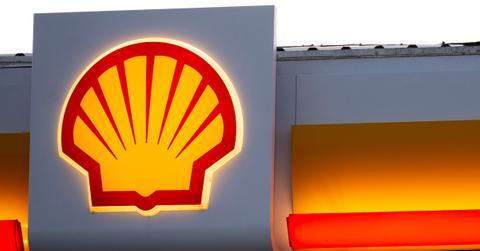Shell's Directors Are Being Sued for Failing to Transition Away From Fossil Fuels
Updated Feb. 10 2023, 12:37 p.m. ET

When oil and gas company Shell recently announced that it made record-breaking profits last year, the corporation probably thought that 2023 would be its best year yet. However, Shell is being sued in various lawsuits at the moment, all in relation to climate change.
And the newest lawsuit accuses 11 of Shell's directors of employing an inadequate climate strategy, which presents serious ramifications for not only the planet, but also for Shell and its shareholders.
Keep reading to learn more about the lawsuit, the environmental group behind it, and the unique way in which this case is being filed.

ClientEarth is suing Shell's Board of Directors over their climate strategy.
On Feb. 9, 2023, ClientEarth announced its new lawsuit against Shell.
ClientEarth is an environmental law organization, "dedicated to protecting life on Earth" by "using the law to create systemic change." The firm works across more than 50 countries, with a focus on the most dire environmental challenges.
Specifically, ClientEarth is lodging this case lawsuit against Shell’s Board of Directors, which is a group of 11 members.
The suit accuses the group of "failing to move away from fossil fuels fast enough," and is ordering them to strengthen Shell’s climate plans.
According to ClientEarth, Shell's board is "legally required to manage risks to the company that could harm its future success, and the climate crisis presents the biggest risk of them all." ClientEarth argues that in order to sufficiently address the business risks that climate change causes, Shell must transition away from fossil fuels. But, ClientEarth claims, the board's current plan to transition away from fossil fuels "is simply unreasonable."
Interestingly, this case does not only accuse the defendant of simply contributing to the climate crisis or misleading the public about its emissions (though Shell is no stranger to cases of that nature).
Instead, the plaintiff is accusing Shell of failing to live up to its promises in a way that will not only hurt the planet and its people, but also Shell's business itself, as it could cost employees their jobs, hurt the company's value for shareholders, and more.
"That puts the company’s long-term commercial viability at risk, and also threatens efforts to protect the planet, further increasing the risk to the company," ClientEarth explains. The firm also believes "this puts Shell’s Board in breach of its legal duties under the U.K. Companies Act to manage the climate risk facing the company."
ClientEarth will be employing shareholder activism to pressure Shell's directors.
How will ClientEarth actually bring this case to the attention of Shell? Well, ClientEarth will be employing something called shareholder activism.
ClientEarth is a shareholder in Shell, so the organization is able to leverage its stake in the corporation to pressure the directors to make changes.
ClientEarth will argue on the behalf of all of Shell's shareholders, as the firm believes that Shell is putting its own future as a business in danger by not getting on board with the clean energy transition.
"Shell’s shareholders need certainty that the company is using their capital effectively in its navigation of the global energy transition and is genuinely pursuing the climate goals that it says it is," explained Paul Benson, a senior lawyer for ClientEarth, in a statement.
According to ClientEarth, this is the first ever case that aims to personally gold corporate directors accountable for the damage that their company is causing in regards to the energy transition.
Shell’s Board has already replied to ClientEarth filing this claim, and stated that "it will defend its position robustly," as per ClientEarth. Now, since Shell is based in the U.K., the U.K.'s High Court will decide if ClientEarth can officially bring the claim to court.